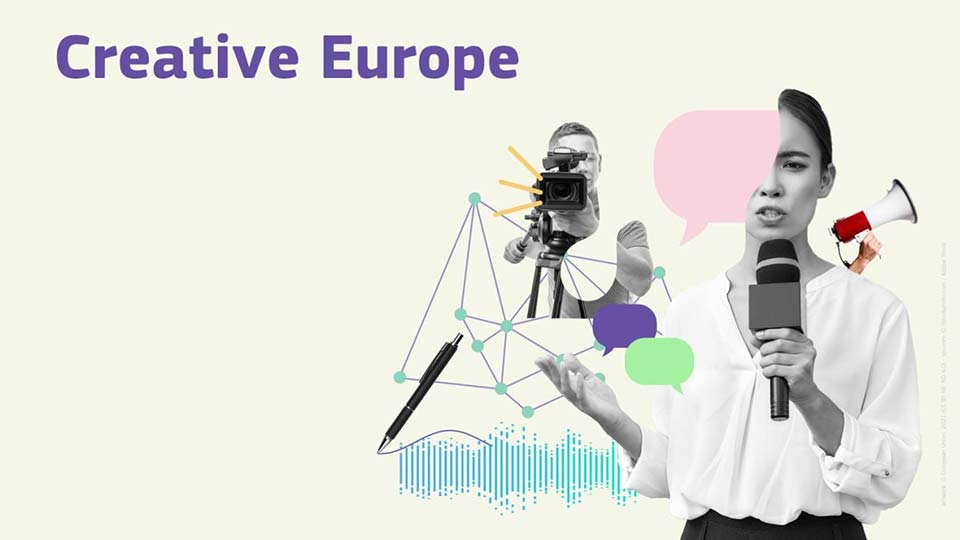The Journalism Science Alliance (JSA) is a programme co-financed by the European Union’s Creative Europe Programme. JSA provides grants, training, mentoring, and networking to promote the production of locally, regionally, and transnationally supported investigative journalism backed by scientific research, and to enhance cross-sectoral cooperation between journalism and research institutions. Supported through training and mentoring provided by JSA, journalists and scientists will work together to uncover new topics of public interest that engage (new) audiences with investigative journalism, while serving the public interest across Europe.
The Journalism Science Alliance is managed by a consortium led by NOVA University in Lisbon, in partnership with the European Journalism Centre (EJC).
Grants will be available for:
- Collaborations involving at least one media organisation and one research/academic institution working on investigations of topics of public interest, such as climate change, healthcare, new technologies, local governance, etc. The list of examples is not exhaustive.
- Organisations must be based in one or more countries participating in the full cross-sectoral strand of the European Union’s Creative Europe Programme, which provides core funding for JSA.
The eligible countries include all 27 EU Member States and the following non-EU countries: Albania, Bosnia and Herzegovina, Georgia, Iceland, Liechtenstein, Montenegro, North Macedonia, Norway, Serbia, and Ukraine.
- The main applicant is always a media organisation. The application must be submitted by a journalist affiliated with that media organisation, who will act as the team leader. This can also be a freelancer, provided they are supported by a media organisation.
- Individual journalists and/or scientists can be part of the teams applying, provided the application already includes at least two organisations (1 media organisation and 1 research organisation), but they cannot act as lead applicants.
- Media organisations, journalists, scientists, and/or research organisations from outside the countries participating in Creative Europe may be part of the applying teams, provided the team already includes one media organisation and one research entity that meet the eligibility criteria.
Grants may be used to cover all costs necessary for the development, completion, and publication of the investigation and the production of journalistic content, including salaries and personnel costs, research-related expenses, translation costs, and travel expenses. The only exception concerns equipment costs (hardware), which are not eligible.
We are now launching the first call under this programme. Approximately one million euros have been earmarked to support the first round of journalistic projects. Teams may apply for grants of €10,000, €20,000, or €50,000, depending on the scope of their project, the complexity of the proposed investigations, the number of partners involved, the nature of the related tasks, and the approximate timeline.
Selection Process and Timelines
The selection of successful applications is carried out by an independent jury composed of distinguished journalists and scientists.
Successful applicants will be informed of the outcome of their application once the independent jury has made its decision. Given the expected high number of applications, the Consortium reserves the right not to provide individual feedback to unsuccessful applicants.
Grants are awarded for a period of 8 months. All funded projects must be completed no later than the date specified in the grant agreement.
Budget: 1 000 000.00 €
